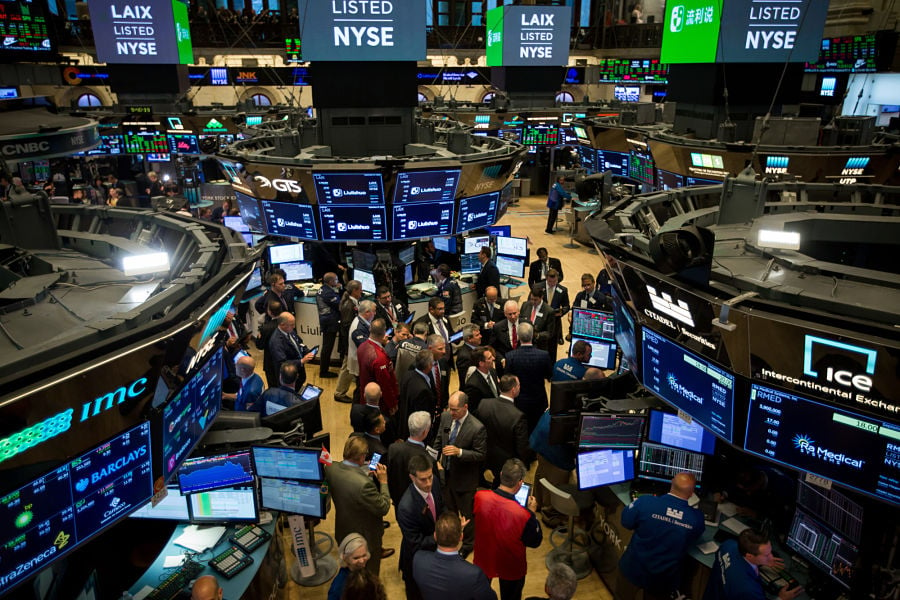

The S&P 500 sank the most since December 2008, the Dow Jones Industrial Average tumbled 2,000 points and small caps lost more than 9% as investors fled risk assets with virus cases surging and the Trump administration so far unwilling to step in to soften the expected economic blow.
In a dramatic day across assets globally, all but nine S&P 500 companies were lower Monday, with energy producers routed by 20%. Exxon Mobil and Chevron were down more than 12%. Banks lost 11%, with an ETF that tracks regional banks had for its worst day since 2009. Apple sank 7.9% and Dow Chemical plunged 22%.
“The market was poised and vulnerable to this volatility and crude oil has just exacerbated it,” said Randy Frederick, vice president of trading and derivatives for Schwab Center for Financial Research. “The coronavirus itself has been the main cause of the correction, but now it’s being exaggerated even further.”
President Donald Trump and his economic team will weigh measures later Monday to contain the fallout from coronavirus and a sudden crash in oil prices, with funding for a temporary expansion of paid sick leave and aid for battered U.S. energy producers among possible steps.
“When there’s panic, there tends not to be accurate pricing of assets,” said Kristina Hooper, Invesco’s chief global market strategist. “The sell-off today to me is emblematic of that. It really is a knee-jerk reaction to what’s happened over the weekend."

The collaboration will focus initially on strategies within collective investment trusts in DC plans, with plans to expand to other retirement-focused private investment solutions.

“I respectfully request that all recruiters for other BDs discontinue their efforts to contact me," writes Thomas Bartholomew.

Wealth tech veteran Aaron Klein speaks out against the "misery" of client meetings, why advisors' communication skills don't always help, and AI's potential to make bad meetings "100 times better."

The proposed $120 million settlement would close the book on a legal challenge alleging the Wall Street banks failed to disclose crucial conflicts of interest to investors.

Sue Quackenbush brings more than 25 years of leadership experience to "align people strategies with a growth-oriented culture" at Envestnet.
Orion's Tom Wilson on delivering coordinated, high-touch service in a world where returns alone no longer set you apart.
Barely a decade old, registered index-linked annuities have quickly surged in popularity, thanks to their unique blend of protection and growth potential—an appealing option for investors looking to chart a steadier course through today's choppy market waters, says Myles Lambert, Brighthouse Financial.
